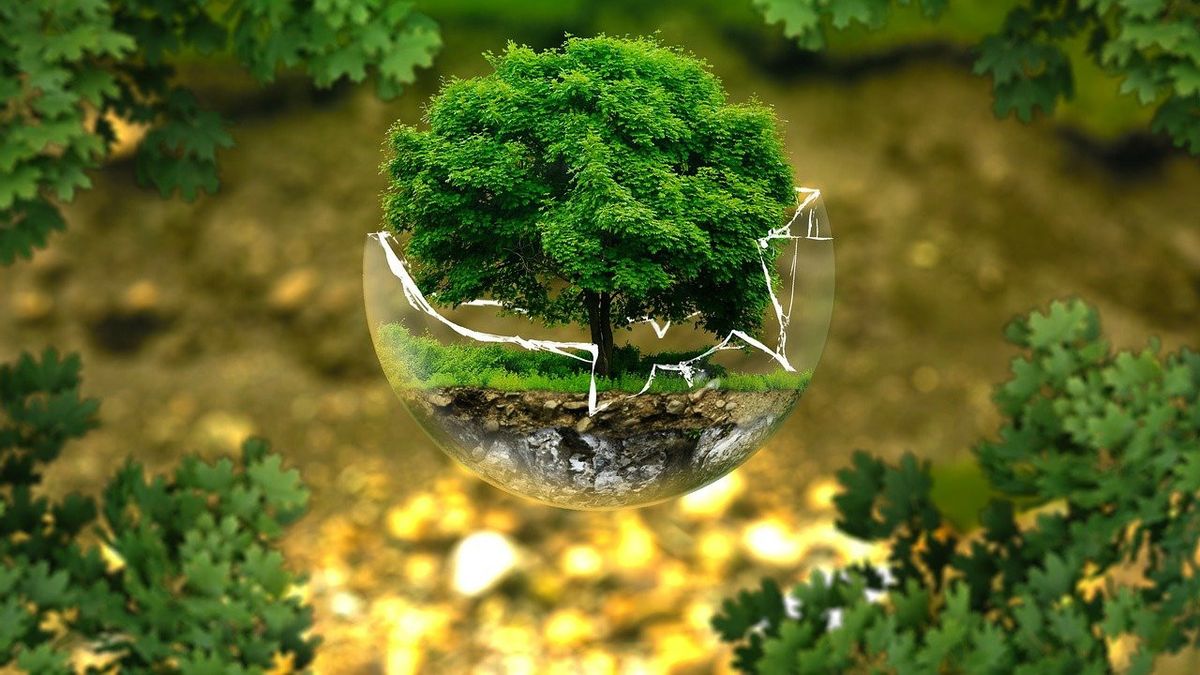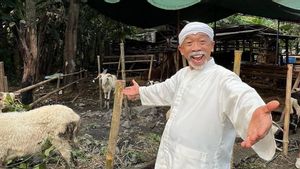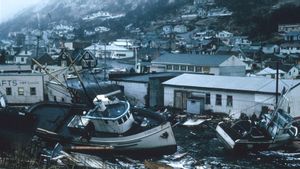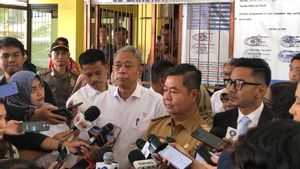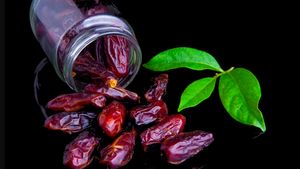JAKARTA - As inhabitants of the earth, it is our duty to protect the planet from pollution, climate change and other destructive things.
This is certainly not an easy mission and can change environmental conditions as a whole. However, we can do small things in everyday life that can help the environment. For example, by doing the following habits:
Stop wasting foodDo you often buy lots of menus but end up being thrown away? Stop this habit immediately! According to data from the United States Department of Agriculture (US), estimates that about 30-40 percent of the food supply in the US is wasted at the retail and consumer levels.
In fact, some of these foods can help feed hungry people. This habit means wasting food, money and environmental resources.
If food is wasted, the land, water, labor, and energy needed to produce, process, transport and prepare the food are wasted.
Not only that, but food thrown into landfills eventually emits large amounts of methane, a greenhouse gas that contributes to climate change.
The new habit you need to do is to eat in moderation, avoid buying more than you can consume. If it is still edible, immediately store it in the refrigerator, freeze it, and eat until it's finished. You can also be creative with leftovers into new menus.
Cut down on single-use plasticsHow much plastic do you use in just a month? This is not only plastic as shopping bags, but also packaging for processed food, bottles of drinks or cooking spices, packaging for toiletries, packaging for facial care products, and packaging for hygiene products such as laundry soap.
When you buy a product with a single-use plastic packaging, it means that you just throw it away after using it.
For the sake of planet earth, you can start buying goods in glass packaging that is more environmentally friendly. After that, the packaging can be reused. You can also shop for bulk model household products by bringing your own bottles or packaging.
Reduce consumption of meatResearch shows that meat production has a major impact on the environment, including more greenhouse gases being released and that much of the land and water is negatively affected.
Meanwhile, plant-based foods are known to have a much smaller impact on greenhouse gas emissions. Cutting back on meat can help reduce the environmental impact of your diet.
CompostIf there are food scraps and organic waste such as leaves and paper, compost them so they don't go into landfills. By composting, you lower your carbon footprint and produce healthy, nutrient-rich soil.
Buy used clothesReducing and reusing are two of the most effective things you can do to protect natural resources. This is because it takes a lot of energy, materials and large resources to produce new goods.
On the other hand, you can also sell, modify, or donate used items to other people instead of throwing them away.
Even if you need to buy new things, for example clothes, you should choose quality ones so they can be used for a long time. It would be better if you choose products with materials that can be recycled or easily biodegradable.
Be wise with the choice of transportationTransportation is one of the largest sources of greenhouse gas emissions in the US. More than half of transportation-related emissions come from passenger vehicles.
You can choose to reduce vehicle use and choose environmentally friendly transportation, for example walking, cycling, and using public transportation. This will significantly reduce your personal carbon footprint.
Save waterDon't forget to save water because this is a valuable resource for human life. According to the US Environmental Protection Agency, the average family can dispose of 180 gallons of water per week, or 9,400 gallons of water each year, just from household leaks.
It is possible to save water every day. Start with simple things such as not letting the water run while you are bathing, brushing your teeth, washing dishes, showering with enough water, waiting for more laundry to use the washing machine.
The English, Chinese, Japanese, Arabic, and French versions are automatically generated by the AI. So there may still be inaccuracies in translating, please always see Indonesian as our main language. (system supported by DigitalSiber.id)
